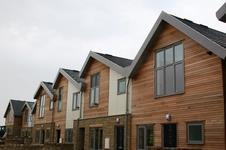Government could force all extension projects to include green improvements to rest of property & Conservatories to be regulated for first time
Homeowners who build extensions could be forced to spend thousands of pounds improving the energy efficiency of the rest of their property under proposals being considered by the government.
A draft consultation for the 2010 version of Part L of the Building Regulations also proposed that conservatories should be covered for the first time. This means that walls, floors and glazing would have to meet minimum standards.
The “consequential improvements” rules on extensions, which already apply to buildings of more than 1,000m2, would effectively add 10% to the cost of the work done. The improvements could include cavity wall and loft insulation or double glazing.
The draft proposals are waiting for ministerial approval, with publication expected imminently.
Consequential improvements for dwellings were proposed for the 2002 version of Part L, but were rejected by ministers.
The industry needs a kickstart, not a kicking
Brian Berry, Federation of Master Builders
However, the government has since set a target of reducing carbon emissions from all homes by 30% by 2020 compared to 2006. It can only achieve this by making people improve their homes, and Part L is currently the only regulatory tool available.
For conservatories, Building understands installers would self-certify their work in the way window installers certify the Part L compliance of replacement windows. The glazed areas would have to meet a maximum U-value of 2.0W/m2K, and floors and walls would need to have a maximum U-value of 0.35W/m2K.
As expected, the draft sets a carbon reduction target of 25% compared with the 2006 version of Part L. However, the target is an average, and buildings where it is more difficult to cut emissions will have lower target.
Other proposals include making it harder for homes using electric heating to comply with Part L, and a requirement to insulate swimming pools.
Brian Berry, external affairs director of the Federation of Master Builders, said it was likely to reduce demand from the domestic sector at the worst point of the economic cycle. “Right now the industry needs a kickstart, not a kicking,” he said.


























7 Readers' comments